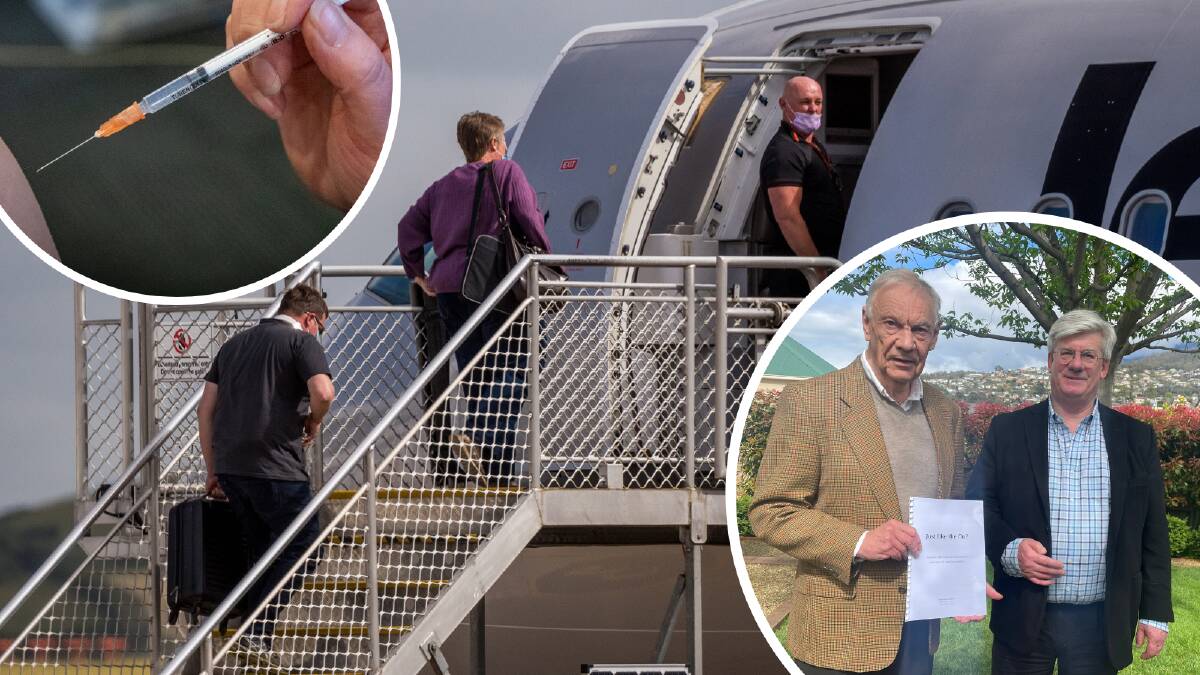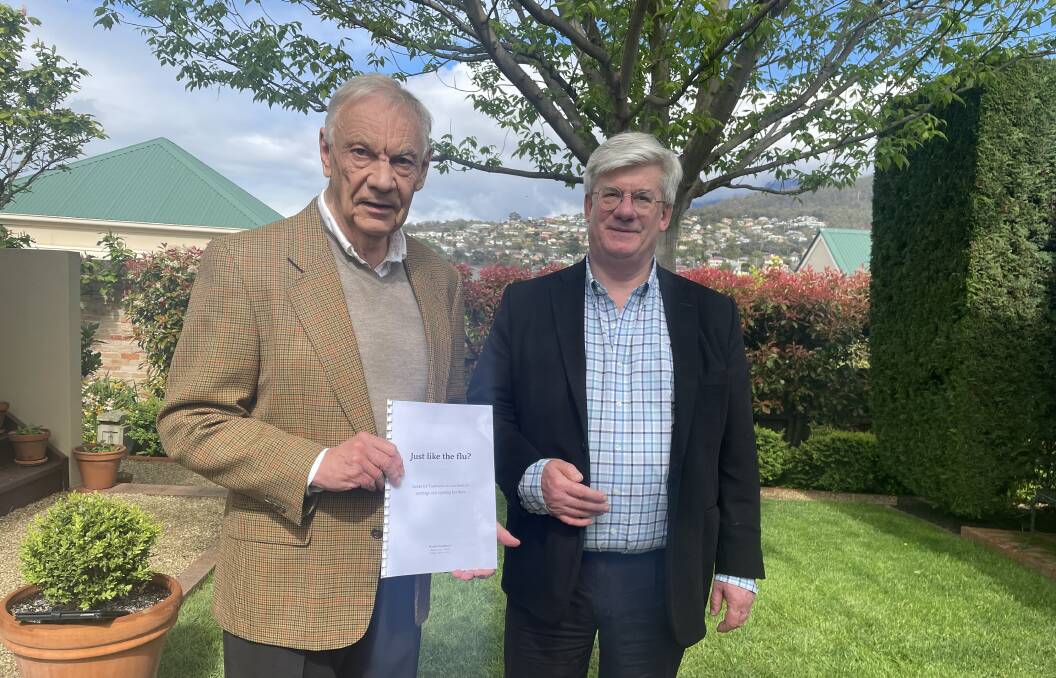
Tasmania must reject the federal government's national plan for reopening the country and take the most cautious approach possible due to recent overseas evidence of the transmissibility of Delta, a health policy analyst believes.
Subscribe now for unlimited access.
or signup to continue reading
And even when state borders fully reopen - either in December or early 2022 - mask mandates and restrictions would likely still apply to prevent extreme pressure being placed on Tasmania's health system.
Martyn Goddard released analysis on Tuesday into the latest overseas data on the effectiveness of vaccines to prevent Delta transmissibility, claiming that while the vaccines were effective at preventing serious illness, they were not entirely effective at slowing the spread.
He found that modelling relied upon by the Doherty Institute in informing the federal government's reopening plan was already out of date, and that vaccination targets of 70 and 80 per cent were far too low.
Mr Goddard's analysis found that Tasmania would be in trouble even with the state government's ambitious target of 90 per cent double-dose vaccination for all people eligible over the age of 16 by December should COVID be allowed to spread, given the large numbers of unvaccinated people still in the community at that level.
He commended the government on having more ambitious vaccination targets than the federal government, but warned Tasmanians that life was unlikely to return to normal any time soon.
"Once we start to open up, it will not be as free as it is now, that's the price we're going to have to pay," Mr Goddard said.
"We either stay where we are now, keep the borders closed and try to control anything that does come in, or we start to open up and the extent to which we open up - the controls we put in place - are going to be absolutely crucial."
While Victoria, NSW and ACT might want borders reopened at 80 per cent, Mr Goddard said this would be unfair on states that have gone without COVID spread for much of the past 18 months.
"What the federal government is wanting states like Western Australia and Tasmania to do is, in my view, insane," he said.
"It might go down OK in Sydney and Melbourne where they've got lots of lockdowns - that's a different mindset, a different situation to what we're facing.
"What works for them does not work for us, and for any state government - in the Tasmanian or Western Australian situation - to just open up and do what Scott Morrison wants would be, in my view, nuts."
With 90 per cent of eligible Tasmanians vaccinated, there would still be 116,000 unvaccinated, with children 15 and under not included in the government's figures.
Slow and steady approach preferred for Tasmania
Economist Saul Eslake agreed with Mr Goddard's analysis, and urged the Tasmanian Government to only reopen when modelling showed it was absolutely safe to do so.
"I think it would be better in the medium to longer run to wait until we have reached levels of vaccination that the serious modelling tells us is safe, and minimises the risk of going back into recurring lockdowns, than to go earlier than that and run the risk," he said.
Tasmania has not experienced community transmission since May last year, when the North-West outbreak resulted in the closure of two hospitals.

Mr Eslake said the evidence from the United Kingdom and Israel showed that opening up the economy too soon could have dire consequences for health systems, costing the state more in the long run.
"If you open up with (vaccination) percentages of the total population that low, especially bearing in mind that the Delta variant seems to be affecting younger people much more than the Alpha and other variants, you are... taking a considerable risk," he said.
"There is a sound argument that Tasmania needs to be more careful than other jurisdictions might be able to be given the inadequacies of our health system."
The pair were eager to urge all Tasmanians to get vaccinated as the greatest defence against COVID.
"You can't rely on somebody else getting vaccinated to protect you," Mr Goddard said.
"You've got to do it yourself. You've got to protect yourself, you've got to take responsibility to get vaccinated and it's really important to do it now."
Tasmania-specific modelling weeks away to inform opening plan
Professor Raina MacIntyre from the University of NSW's Kirby Institute is preparing Tasmania-specific modelling to guide the government's opening plan, expected to be released within two weeks.
Director of Public Health Mark Veitch said the latest data - including the transmissibility of the Delta strain among the vaccinated - will be factored in.
"They will also be putting into it estimates of the extent to which the vaccine prevents transmission," he said.
"We know that's less effective at preventing transmission as it is at those severe clinical consequences, but the models will put the latest in, and it'll also put values in a bit higher or lower just to see how that changes the picture."
Health Minister Jeremy Rockliff welcomed Mr Goddard's input, and said the health and safety of Tasmanians would be the main priority in developing a reopening plan.
"That will inform us when we make some very key decisions when we get those vaccination rates at 90 per cent or above," he said.
"There are various scenarios that Professor MacIntyre is modelling through the Kirby Institute, and we look forward to receiving that modelling."
What do you think? Send us a letter to the editor:
Our journalists work hard to provide local, up-to-date news to the community. This is how you can continue to access our trusted content:
- Bookmark www.examiner.com.au
- Make sure you are signed up for our breaking and regular headlines newsletters
- Follow us on Twitter: @examineronline
- Follow us on Instagram: @examineronline
- Follow us on Google News: The Examiner















